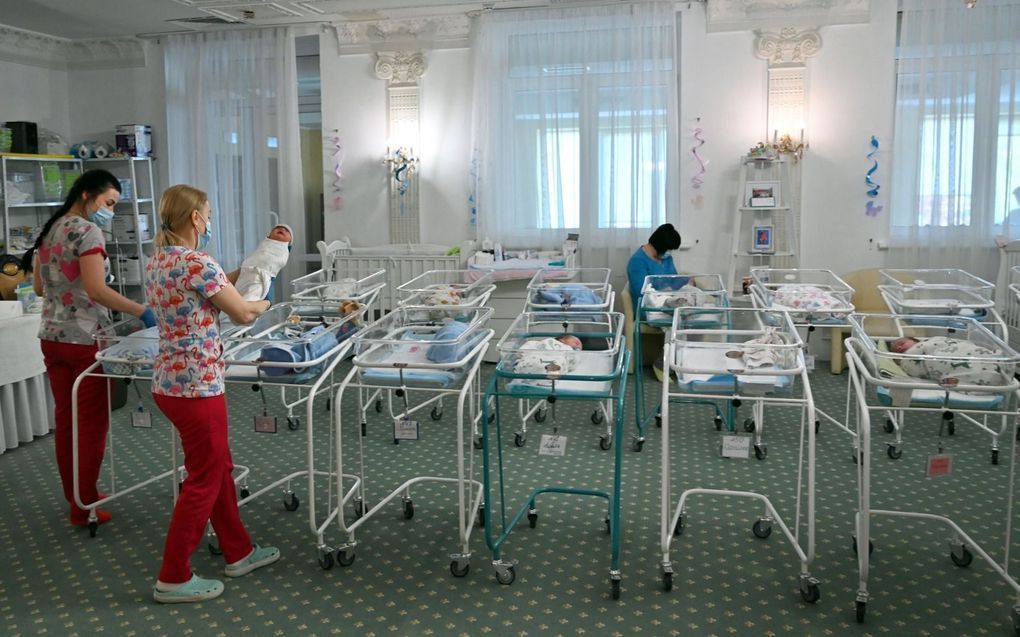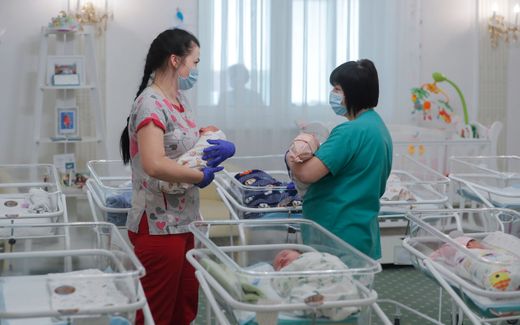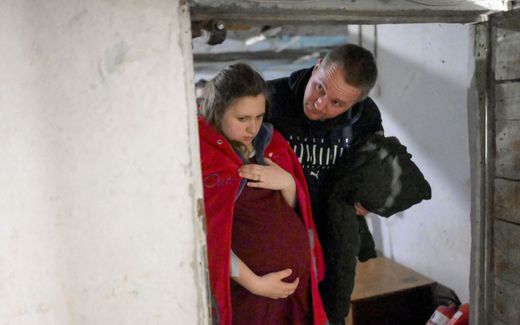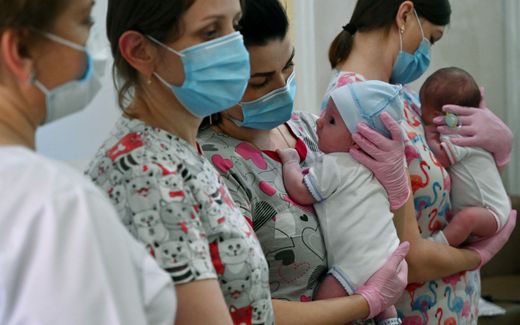Across Europe, single men can ‘buy’ a child

Ukrainian employees care for surrogacy babies in Kyiv. Photo AFP, Sergei Supinsky
Central Europe
The Czech capital Prague is becoming increasingly popular for commercial surrogacy motherhood. Officially it is forbidden, but in practice, a lot is possible. Gay couples and single men can also pick up a child here.
The Czech authorities completed a three-year investigation into human trafficking in early June. They investigated cases where Ukrainian women gave birth in the Czech Republic to a child supposedly intended for single non-Czech nationals.
The investigation centred on a private clinic in Kharkiv, Ukraine, allowing people to 'order' a child. Research by the Czech news site Seznam Zprávy shows that interested parties from all over the world can choose the colour of their skin, sex and hair via a catalogue. The clinic then selects a suitable egg donor, and a surrogate mother is fertilised.
In Ukraine, single men or gay couples cannot pick up their child; only a heterosexual couple can use a surrogate mother. Therefore, for other target groups, there is Prague. The surrogate mother gives birth in the Czech capital and gives the client custody of the child. The man can then easily leave the Czech Republic with the child without it being known whether he is capable of raising the child and what the motives are behind his desire to have a child.
Trick
This logistical trick does not surprise Czech professor Hana Konečná. According to her, this is possible in almost every country. Speaking to CNE.news, Konečná, a psychologist and medical ethicist at the University of South Bohemia, says the Czech Republic is a logical choice. "The Czech Republic is close to Ukraine. In addition, Czech is related to Ukrainian."
Yet, according to Konečná, this route would be possible in almost any other country. "You cannot stop a foreign woman from giving birth. The woman can also name any possible man as the father on the birth certificate." The existence of sperm banks also means that the biological father does not necessarily have to be on the certificate.
Strictly speaking, this is human trafficking, the Czech authorities say. However, this is legally more difficult. According to Czech law, authorities must be able to prove that a child has ended up with a paedophile or has been the victim of child pornography. This was not the case in the investigated cases. One of the ways of obtaining parenthood in the Czech Republic is to submit a declaration of consent from the mother and the husband to the town hall. In such a case, it is difficult to trace the motives of the possibly unmarried couple.
Victim
According to Konečná, especially countries that restrict surrogacy are the victims of these logistic techniques. In Europe, there have been several court cases in which surrogacy clients have filed a lawsuit against their state because of restrictions on recognising a surrogate child as their own. The plaintiffs were often vindicated to protect the child, even though the state had the law on its side.
According to Konečná, this was often because of pressure from the European Court of Human Rights and other international organisations. The European Court recognises that circumventing national legislation in this way is a problem but emphasises the child's interests. The Court does not look at biological family ties. In such a case, the judge is faced with the choice of denying custody to parents who are the only ones interested in it or going along with more liberal standpoints of other countries.
Konečná thinks that harmonising family law across countries is the only solution to prevent international trafficking. "A possible solution could be when countries agree to allow surrogacy exclusively for their own citizens." This is currently Russia's intention.
Recently, the European Parliament condemned surrogacy. In a resolution, it called the practice a form of 'reproductive exploitation'. However, this resolution is not binding on member states.
As a professor, Konečná is also involved in the Council of Europe as a member of the medical ethics committee. According to her, surrogacy is not currently high on the agenda of the human rights organisation.
Magnifying glass
In France, too, surrogacy is under a magnifying glass. In the country, every form of surrogate motherhood is prohibited. President Macron calls this a red line he does not want to cross.
Since the war in Ukraine, the French public prosecutor has opened at least two investigations into Ukrainian women who gave birth in France. The French judge is quick to turn a blind eye in such a case, says Bernard Garcia to CNE.news. Garcia is a lawyer with the French Juristes pour l'Enfance. This organisation defends children's rights and recently called on the French authorities to take enforce national law.
Although surrogacy is prohibited, Garcia believes there is growing pressure in France to allow it so that people can have children. There are also financial motives. "This is a potential market where a lot of money can be made, and many organisations are interested in it."
Related Articles






